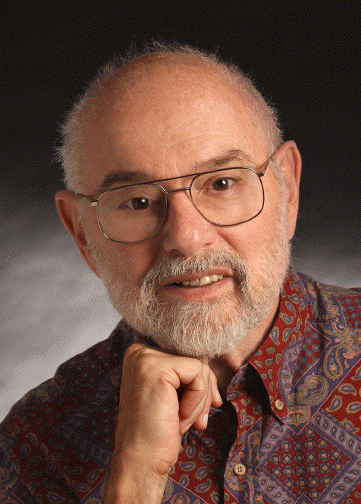
Stan Franklin
Encyclopedia

Stan Franklin is an American scientist and W. Harry Feinstone Interdisciplinary Research Professor at the University of Memphis, TN and co-director of the Institute of Intelligent Systems. He is the author of Artificial Minds
Artificial Minds
Artificial Minds is a book written by Stan Franklin and published in 1995 by MIT Press.The book is a wide-ranging tour of the development of artificial intelligence as of the time it was written...
(MIT Press, 1995) and mental father of IDA
Artificial consciousness
Artificial consciousness , also known as machine consciousness or synthetic consciousness, is a field related to artificial intelligence and cognitive robotics whose aim is to define that which would have to be synthesized were consciousness to be found in an engineered artifact .Neuroscience...
and its successor LIDA
LIDA (cognitive architecture)
The LIDA cognitive architecture is an integrated artificial cognitive system that attempts to model a broad spectrum of cognition in biological systems, from low-level perception/action to high-level reasoning. Developed primarily by Stan Franklin and colleagues at the University of Memphis, the...
, both computational implementations of Global Workspace Theory
Global Workspace Theory
Global Workspace Theory is a simple Cognitive architecture that has been developed to account qualitatively for a large set of matched pairs of conscious and unconscious processes. It was proposed by Bernard Baars...
. He is founder of the Cognitive Computing Research Group
Cognitive Computing Research Group
The Cognitive Computing Research Group is a multi-disciplinary research center located at the University of Memphis. The CCRG’s research revolves around the design and implementation of cognitive software agents, their computational applications, and their use in cognitive modeling...
at the University of Memphis.
Life and work
Stan was born in Memphis, Tennessee in 1931. His graduate degrees are from UCLA, his undergraduate degree from the University of Memphis.He has lived in Cherry Point, North Carolina, Pittsburgh, Pennsylvania, Los Angeles, California, and Kanpur, India, and has been on the faculty of the University of Florida, Indian Institute of Technology at Kanpur,Carnegie Mellon University, and the University of Memphis.
A mathematician turned computer scientist turning cognitive scientist, Franklin's research is motivated by wanting to know how minds work—human minds, animal minds and, particularly, artificial minds.
For some years he’s worked on “conscious” software agents, that is, autonomous agents modeling the global workspace theory of consciousness
Global Workspace Theory
Global Workspace Theory is a simple Cognitive architecture that has been developed to account qualitatively for a large set of matched pairs of conscious and unconscious processes. It was proposed by Bernard Baars...
. These agents computationally model human and animal cognition, and provide testable hypotheses for cognitive scientists and neuroscientists. This endeavor, funded by the US Navy, has been the subject of some sixty papers in scientific journals and conference proceedings.
Publications
He has authored or co-authored numerous academic papers as well as a book entitled Artificial Minds published by MIT Press, which was a primary selection of the Library of Science book club, and has been translated into Japanese and Portuguese.- Baars, B. J., & Franklin, S. (2009). Consciousness is computational: The LIDA model of Global Workspace Theory. International Journal of Machine Consciousness, 1(1), 23-32.
- Franklin, S. (2007). A Foundational Architecture for Artificial General Intelligence. In B. Goertzel & P. Wang (Eds.), Advances in Artificial General Intelligence: Concepts, Architectures and Algorithms, Proceedings of the AGI Workshop 2006 (pp. 36–54). Amsterdam: IOS Press.
- Franklin, S., & Ramamurthy, U. (2006). Motivations, Values and Emotions: Three sides of the same coin. Proceedings of the Sixth International Workshop on Epigenetic Robotics (Vol. 128, pp. 41–48). Paris, France: Lund University Cognitive Studies.
- Franklin, S. 2005. A "Consciousness" Based Architecture for a Functioning Mind. In Visions of Mind, ed. D. N. Davis. Hershey, PA: Information Science Publishing.
- Franklin, S, B J Baars, U Ramamurthy, and Matthew Ventura. 2005. The role of consciousness in memory. Brains, Minds and Media 1: 1–38, pdf.
- Baars, Bernard J and Stan Franklin. 2003. How conscious experience and working memory interact. Trends in Cognitive Science 7: 166–172.
- Franklin, Stan (2003), 'IDA: A Conscious Artefact?' in Machine Consciousness, ed. Owen Holland (Exeter, UK: Imprint Academic).

